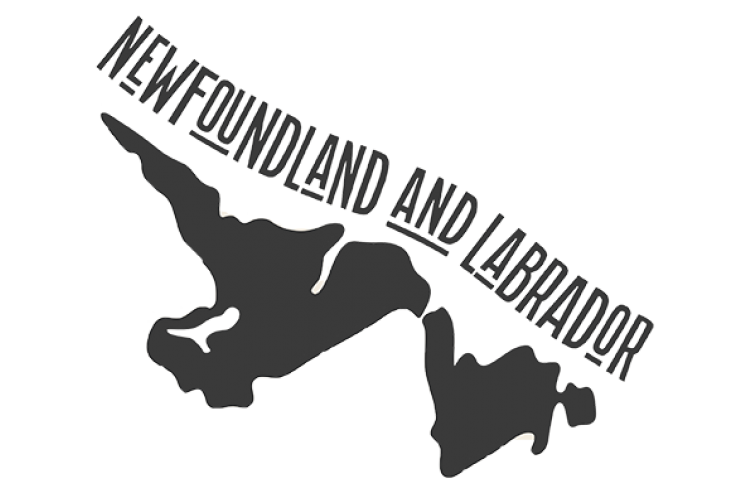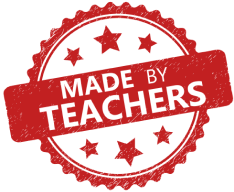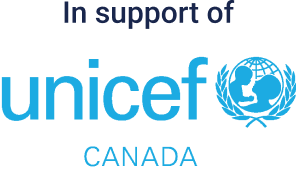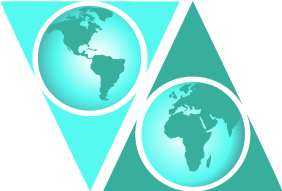Newfoundland and Labrador Grade 5

CLICK HERE FOR CURRICULUM CONNECTIONS, LESSONS AND SUPPORT RESOURCES.
Made by a Grade 5 teacher in Newfoundland & Labrador.
Kids Boost Immunity (KBI) provides educational content (lessons and support materials) developed by teachers and where needed, health experts, that is directly linked to curriculum and is available completely for free. Each lesson is paired with an online quiz that students can take on a laptop, tablet, or phone. Every time a student scores 80% or higher on a quiz, we donate life-saving vaccines to UNICEF Canada. To learn more about KBI, click here.
Click on the overarching curriculum themes below to see the curriculum outcomes that match KBI educational content. The full Grade 5 Newfoundland & Labrador Curriculum Connections document is here.
- English Language Arts 5
-
Curricular outcomes:
Reading and Viewing
- ELA - GCO 4
- Students will be expected to select, read, and view with understanding a range of literature, information, media, and visual text.
- 4.1 Use cueing systems to construe meaning
- 4.4 Explain how text structures convey meaning
- Students will be expected to select, read, and view with understanding a range of literature, information, media, and visual text.
Writing and Representing
- ELO - GCO 8
- Students will be expected to use writing and representation to explore, clarify, and reflect on their thoughts, feelings, experiences, and learnings; and to use their imaginations.
- 8.2 create texts that represent experiences, personality, and interests
- Sort sensory details (5-E.1)
- Put the sentences in order (5-O.1)
- 8.2 create texts that represent experiences, personality, and interests
- Students will be expected to use writing and representation to explore, clarify, and reflect on their thoughts, feelings, experiences, and learnings; and to use their imaginations.
- ELO - GCO 10
- Students will be expected to use a range of strategies to develop effective writing and representing and to enhance their clarity, precision, and effectiveness.
- 10.1 create texts using the processes of writing and representing
- Students will be expected to use a range of strategies to develop effective writing and representing and to enhance their clarity, precision, and effectiveness.
All KBI learning modules are applicable.
Most lessons have interactive educational games to support comprehension.
Lessons have a link to unit/lesson plans on each lesson title. These include adaptable literacy building activities such as vocabulary worksheets with phonetic structures, spelling exercises, matching definitions to vocabulary terms, sentence writing using vocabulary terms, and prefix/suffix exercises.
- ELA - GCO 4
- Building Critical Inquiry Skills
-
Curricular outcomes:
ELA- GCO 7
- Students will be expected to respond critically to a range of texts, applying their knowledge of language, form and genre. (RV - Reading and Viewing) Students will be expected to:
- 7.1 ask critical questions of texts
- 7.2 analyze intended messages in texts
ELA- Critical Literacy
- It involves the ability to read deeper into the content and to recognize and evaluate the stereotyping, cultural bias, author’s intent, hidden agendas, and silent voices that influence texts.
ELA- Information Literacy
- Students must be able to evaluate information from it. This involves detecting bias, differentiating between fact and opinion, weighing conflicting opinions, and evaluating the worth of sources. Information literacy also focuses on the ability to synthesize the information so that it can be communicated.
Social Studies- Integrated Concepts & Processes
- icp.3 make judgments based on appropriate criteria
Social Studies- Unit 1
- 1.1 explain how primary sources are used to construct historical knowledge
Science- GCO 2 (Skills)
- Students will develop the skills required for scientific and technological inquiry, for solving problems, for communicating scientific ideas and results, for working collaboratively, and for making informed decisions
- 1.0 propose questions to investigate and practical problems to solve
- 15.0 identify and use a variety of sources and technologies to gather relevant information
- 20.0 evaluate the usefulness of different information sources in answering a question
Applicable KBI lessons:
1. Critical Thinking & Evaluating Information
- Literacy builder worksheet/answer guide
- Lesson worksheet/answers
- Inquiry activities/answer guides
- Numeracy activity/answers
- Students will be expected to respond critically to a range of texts, applying their knowledge of language, form and genre. (RV - Reading and Viewing) Students will be expected to:
- Weather and Environment
-
Curricular outcomes:
Science - Weather
- GCO 2 (Skills): Students will develop the skills required for scientific and technological inquiry, for solving problems, for communicating scientific ideas and results, for working collaboratively, and for making informed decisions.
- 40.0 provide examples of how science and technology have been used to solve problems in their community and region
- GCO 4 (Attitudes) be sensitive to and develop a sense of responsibility for the welfare of other people, other living things, and the environment
Applicable KBI lessons:
1. Environment & Climate Change
- Literacy builder worksheet/answer guide
- Lesson worksheet/answers
- Inquiry activities/answer guides
- Numeracy activity/answers
- Indigenous History in Canada
-
Curricular outcomes:
ELA- GCO 3
- Students will be able to interact with sensitivity and respect, considering the situation, audience and purpose.
Social Studies- Unit 4: Decision Making
- 4.0 Students are expected to explain the diversity of First Nation and Inuit societies in what later became Canada (c. 1000-1400 CE).
- 4.1 locate and describe societies using geographic concepts
- 4.2 explain how human environmental interactions influenced societies
- 5.0 Students are expected to explain the decision-making practices used by First Nation and Inuit societies in the Atlantic region (c. 1000-1400 CE).
- 5.1 identify and describe examples of decision making
- 5.2 explain the social structures of societies
- 5.3 explain how social structure influenced decision-making
Social Studies- Unit 5: Interactions
- 6.0 Students are expected to analyse interactions between British and French settlers and First Nation and Inuit societies in the Atlantic region (c. 1650-1800 CE).
- 6.3 compare interactions that occurred between settlers and First Nations and Inuit
Social Studies- Unit 6: Continuity & Change
- 7.1 identify similarities and differences of past societies and present-day societies
- 7.2 determine the most significant similarity(ies) and difference(s) of past societies and present-day societies
- 7.3 predict how societies might change in the future
Science- GCO1 (STSE)
- 37.0 describe and compare tools, techniques, and materials used by different people in their community and region to meet their needs
Applicable KBI lessons:
1. Life on Turtle Island
- Literacy builder worksheet/answer guide
- Lesson worksheet/answers
2. Cooperation & Colonization
- Literacy builder worksheet/answer guide
- Lesson worksheet/answers
- Levels of Government and Map Reading
-
Curricular outcomes:
Social Studies - GCO 1. Citizenship, Power, and Governance
- Demonstrate an understanding of the rights and responsibilities of citizenship, and the origins, functions, and sources of power, authority, and governance.
Applicable KBI lessons:
1. Canada's Three Levels of Government
- Literacy builder worksheet/answer guide
- Lesson worksheet/answers
- Numeracy activity/answers
- SCIENCE 5 & HEALTH 5
-
Curricular outcomes:
SCIENCE 5
- Outcome: Learners will analyse how the body functions to meet its needs.
- Organs and systems function together to help humans and other animals meet their basic needs. Learners will explore the major internal organs through the use of models and simulations. Many factors can affect a healthy body and an analysis of how the body functions to meet its needs will allow learners to explore the role they play in maintaining a healthy body.
- Outcome: Describe the major functions and structures of the respiratory, digestive, excretory, and circulatory systems. 302-5
- Elaborations - Strategies for Learning and Teaching
- Students should investigate the role of the digestive system in providing nourishment for the body functions. Major organs include teeth, the tongue, oesophagus, stomach, small intestine and large intestine.
- Students should investigate the structure and function of the circulatory system. Major organs include the heart and blood vessels (arteries, veins, capillaries and blood).
- Students should investigate the structure and function of the respiratory system. Major organs include the nose, trachea, lungs and diaphragm.
HEALTH 5
- Outcome: Health Learners will investigate how health behaviours enhance physical, mental, emotional, social, and spiritual health
- Investigate healthy behaviours that can impact transmission of communicable diseases (CZ, COM, CT, PCD)
Applicable KBI lessons:
1. The Human Body - Circulatory System
- Literacy builder worksheets/answer guides
- Lesson worksheets/answers
- Inquiry activities/answer guides
2. The Human Body - Respiratory System
- Literacy builder worksheet/answer guide
- Lesson worksheet/answers
- Inquiry activities/answer guides
- Numeracy activity/answers
3. The Human Body - Digestive System
- Literacy builder worksheet/answer guide
- Lesson worksheet/answers
- Inquiry activities/answer guides
- Numeracy activity/answers
- Outcome: Learners will analyse how the body functions to meet its needs.
- The Body’s Defence System & How Vaccine Technology Helps
-
Curricular outcomes:
Science- GCO 1 (STSE)
- Students will develop an understanding of the nature of science and technology, of the relationships between science and technology, and of the social and environmental contexts of science and technology.
- 29.0 demonstrate that specific terminology is used in science and technology contexts
- 31.0 describe examples of tools and techniques that have contributed to scientific discoveries
- 40.0 provide examples of how science and technology have been used to solve problems in their community and region
- 49.0 describe examples of technologies that have been developed to improve living conditions
Science- GCO 2 (Skills)
- Students will develop the skills required for scientific and technological inquiry, for solving problems, for communicating scientific ideas and results, for working collaboratively, and for making informed decisions
- 15.0 identify and use a variety of sources and technologies to gather relevant information
- 20.0 evaluate the usefulness of different information sources in answering a question
Science- Body Systems
- 67.0 describe how body systems help humans meet their basic needs
- 70.0 describe the role of the skin
- 71.0 describe the body’s defenses against infections
Science GCO 3: Knowledge
- describe interactions within natural systems and the elements required to maintain these systems
- be sensitive to and develop a sense of responsibility for the welfare of other people, other living things, and the environment
Social Studies- Unit 6: Continuity & Change
- 7.1 identify similarities and differences of past societies and present-day societies
- 7.2 determine the most significant similarity(ies) and difference(s) of past societies and present-day societies
ELA- GCO 7
- Students will be expected to respond critically to a range of texts, applying their knowledge of language, form and genre. (RV - Reading and Viewing) Students will be expected to:
- 7.1 ask critical questions of texts
- 7.2 analyze intended messages in texts
Applicable KBI lessons:
1. Germs, The Body’s Defense System, and How Vaccines Help
- Lesson worksheet/answers
2. How To Handle Your Vaccines Like a Champ
3. Classifying Living Things
- Literacy builder worksheet/answer guide
- Lesson worksheet/answers
- Numeracy activity/answers
- Mindfulness and anxiety-reducing exercise
-
Curricular outcomes:
Health - Mental Health
- 4. understand that the way we are treated impacts on self-esteem and general emotional well-being
Applicable KBI lessons:
1. Social and Emotional Learning
Curriculum-Related Themes Throughout the Year
- Reflecting on hardships and courage during WWII (November)
-
Curricular outcomes:
Social Studies- Unit 6: Continuity & Change
- 7.0 - Students are expected to compare past societies and present-day society.
- 7.1identify similarities and differences of past societies and present-day societies
- 7.2 determine the most significant similarity(ies) and difference(s) of past societies and present-day societies
ELA
- GCO 2: Students will be able to communicate information and ideas effectively and clearly, and to respond personally and critically.
- GCO 3: Students will be able to interact with sensitivity and respect, considering the situation, audience and purpose.
- GCO 4: Students will be expected to select, read and view with understanding a range of literature, information, media and visual text.
- GCO 6: Students will be expected to respond personally to a range of texts
Applicable KBI lessons:
1. Remembrance Day / Veterans Day / Armistice Day
- Being kind and building leadership skills to help make a difference to others (December)
-
Curricular outcomes:
Health:
- 4. understand that the way we are treated impacts on self-esteem and general emotional well-being
Applicable KBI lessons:
1. Winter Break - Spreading Kindness
- Literacy builder worksheet/answer guide
- Activity - Making A Difference
- Activity - Compare and Contrast special things at this time of year
- Activity - Recipe book
- Activity - Shape Poem
- Highlighting some key inspirational leaders during Black History Month as well as some experiences of refugees from different parts of the world (February)
-
Curricular connections:
Science GCO 1 (STSE)
- Students will develop an understanding of the nature of science and technology, of the relationships between science and technology, and of the social and environmental contexts of science and technology.
- 36.0 identify examples of scientific questions and technological problems addressed in the past (GCO 1) 40.0 provide examples of how science and technology have been used to solve problems in their community and region ( GCO 1)
- 43.0 identify scientific discoveries and technological innovations of people from different cultures ( GCO 1)
Science GCO 3 (Knowledge):
- Students will construct knowledge and understandings of concepts in life science, physical science, and Earth and space science, and apply these understandings to interpret, integrate, and extend their knowledge.
- 71.0 describe the body’s defenses against infections
English Language Arts
- ELA GCO 3: Students will be able to interact with sensitivity and respect, considering the situation, audience and purpose.
- ELA GCO 4: Students will be expected to select, read and view with understanding a range of literature, information, media and visual text.
Health - Mental Health
- 3. understand the interrelationship of physical and mental health, and general well-being,
- 4. understand that the way we are treated impacts on self-esteem and general emotional well-being,
Health - Active Living
- 3. recognize the importance of daily physical activity for general well-being
Applicable KBI lessons:
1. Black History Month
2. Refugee Experiences
- Lesson worksheet/answers
- Inquiry activities
- Students will develop an understanding of the nature of science and technology, of the relationships between science and technology, and of the social and environmental contexts of science and technology.
- Celebrating Inspiring Women in STEM (March)
-
Curricular outcomes:
Health - Relationships
- 7. identify ways of eliminating male/female stereotyping,
Social Studies - GCO 2 : Culture and Diversity
- Unit Five: Interactions - How are societies influenced by interactions with other societies?
- GCO 2 Students will be expected to demonstrate an understanding of culture, diversity, and world view, while recognizing the similarities and differences reflected in various personal, cultural, racial, and ethnic perspectives.
- Unit Six - Continuity and Change: How do societies change over time?
- 7.0 - Students are expected to compare past societies and present-day society.
- 7.1 identify similarities and differences of past societies and present-day societies
ELA
- GCO 4 Students will be expected to select, read and view with understanding a range of literature, information, media and visual text.
- GCO 6 Students will be expected to respond personally to a range of texts.
Science GCO 1: STSE
- describe ways that science and technology work together in investigating questions and problems and in meeting specific needs
- describe applications of science and technology that have developed in response to human and environmental needs
- describe positive and negative effects that result from applications of science and technology in their own lives, the lives of others, and the environment
- Science 40.0 provide examples of how science and technology have been used to solve problems in their community and region (GCO 1)
- Science 41.0 consider the positive and negative effects of familiar technologies (GCO 1)
- Science 43.0 identify scientific discoveries and technological innovations of people from different cultures (GCO 1)
Applicable KBI lessons:
1. International Women's Day - Celebrating Inspiring Women in STEM
- Literacy builder worksheets/answer guides
- Inquiry activities
- Understanding communicable diseases and how they are spread, and learning about immunization. Suggested during flu season, immunization awareness week, and school vaccinations (if applicable)
-
Curricular outcomes:
ELA
- GCO 4 Students will be expected to select, read and view with understanding a range of literature, information, media and visual text.
- GCO 7 Students will be expected to respond critically to a range of texts, applying their knowledge of language, form and genre. (RV - Reading and Viewing) Students will be expected to:
- 7.1 ask critical questions of texts
- 7.2 analyze intended messages in texts
Science GCO 1: STSE
- describe ways that science and technology work together in investigating questions and problems and in meeting specific needs
- describe applications of science and technology that have developed in response to human and environmental needs
- describe positive and negative effects that result from applications of science and technology in their own lives, the lives of others, and the environment
- 41.0 consider the positive and negative effects of familiar technologies
- 43.0 identify scientific discoveries and technological innovations of people from different cultures
- 49.0 describe examples of technologies that have been developed to improve living conditions
Science - Body Systems
- 70.0 describe the role of the skin
- 71.0 describe the body’s defenses against infections
Health - Self- Care
- 6. explain the difference between virus and bacteria,
Health - Consumer Health
- 5. identify some professional and volunteer health groups and agencies in your community.
Social Studies: Culture and Diversity
- Demonstrate an understanding of culture, diversity, and world view, while recognizing the similarities and differences reflected in various personal, cultural, racial, and ethnic perspectives.
Applicable KBI lessons:
1. Immunization Awareness Week
2. The Spread of Infectious Diseases
3. Canada's Interactions with the Global Community
- Literacy builder worksheet/answer guide
- Lesson worksheet/answers
- Video worksheet/answers
- Numeracy activity
- Inquiry activities
4. Scientific Curiosity and Vaccine Discoveries




